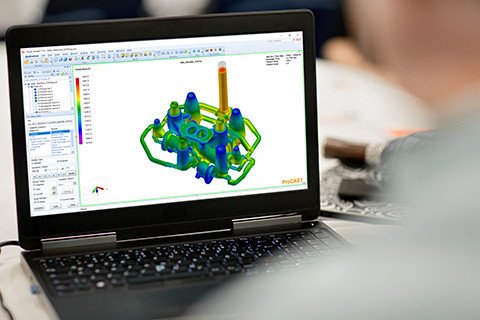BagelTechNews Exclusive: The Top Tech Updates You Need to Know

The world of technology is always in flux, constantly evolving and transforming in ways that affect how we work, live, and connect with others. Whether it’s groundbreaking innovations, tech industry shifts, or advancements that promise to change our daily lives, staying up to date with the latest news is crucial. At BagelTechNews, we aim to bring you the most important and relevant updates from the tech world, keeping you informed about the innovations and trends that are shaping the future.
In this article, we’ll dive into the most significant tech updates you need to know right now. From the evolution of AI to the rise of 5G networks and the latest in consumer tech, these developments are paving the way for the future.
1. The Rise of Artificial Intelligence (AI) in Everyday Life
AI is no longer just a buzzword in the tech world; it’s a driving force behind many of the innovations we see today. Whether it’s through smart devices, automated services, or breakthroughs in industries like healthcare and finance, AI’s impact on our daily lives continues to grow.
The development of generative AI tools, such as OpenAI’s GPT models, has revolutionized the way we interact with machines. These tools are now used to create content, answer questions, and even offer customer service. AI has also made its way into creative industries, where it helps artists and designers generate art, music, and even video content. For instance, AI-driven design platforms are now helping professionals and hobbyists alike create stunning visuals and layouts with minimal effort.
In the healthcare sector, AI is being used to diagnose diseases more quickly and accurately than traditional methods. Machine learning models can analyze medical data to predict patient outcomes, recommend treatments, and even develop new drugs. With AI-powered tools becoming more sophisticated, the potential to improve global health is immense.
As AI continues to develop, its presence in everyday life will only increase. From voice assistants to autonomous vehicles, the technology is reshaping how we interact with the world.
2. The Expansion of 5G Networks
5G technology is one of the most anticipated advancements in the tech world. Promising faster internet speeds, lower latency, and greater connectivity, 5G is expected to revolutionize everything from mobile communication to the Internet of Things (IoT).
One of the key benefits of 5G is its ability to support a much larger number of devices at once. This is critical for the proliferation of smart homes, connected vehicles, and industrial IoT systems. As 5G networks roll out across the globe, we’re likely to see a rise in smart city initiatives, where interconnected systems are used to optimize everything from traffic flow to energy use.
For consumers, 5G means faster download speeds, better streaming quality, and enhanced mobile gaming experiences. However, while the technology is still being rolled out in many parts of the world, its full potential is far from realized. As infrastructure improves and adoption increases, 5G is set to bring about a massive shift in how we communicate and connect.
3. Virtual and Augmented Reality in Tech
Virtual Reality (VR) and Augmented Reality (AR) have been around for a while, but their use cases are expanding rapidly. These immersive technologies are no longer limited to gaming or niche applications; they are becoming integral parts of business, education, healthcare, and entertainment.
One of the most exciting developments in VR and AR is in the field of remote collaboration. Platforms like Microsoft’s Mesh are allowing people to meet and collaborate in virtual spaces, even if they’re on opposite sides of the world. These virtual environments are designed to simulate the feeling of being in the same room, helping businesses save time and money while still fostering collaboration.
In education, AR is helping students engage with content in a more interactive and immersive way. For instance, medical students can use AR to explore 3D models of the human body, giving them a hands-on learning experience that traditional textbooks can’t offer.
In entertainment, VR gaming has evolved into an experience that’s increasingly hard to distinguish from reality. Popular titles like “Half-Life: Alyx” have set the standard for immersive gameplay, and as VR hardware becomes more affordable, more people are getting into the world of virtual gaming.
The future of VR and AR is bright, with tech companies working on making these technologies more accessible and practical for everyday use.
4. Blockchain and Cryptocurrency: Revolutionizing Finance
Blockchain technology, the foundation behind cryptocurrencies like Bitcoin and Ethereum, has seen a surge in interest over the past few years. While cryptocurrencies have captured much of the spotlight, blockchain’s potential extends far beyond digital currencies.
Blockchain is essentially a decentralized, digital ledger that records transactions across multiple computers in a way that ensures data integrity and transparency. Its applications are vast, ranging from supply chain management to voting systems, digital identity verification, and even art provenance.
One of the most significant trends in blockchain technology is the rise of Decentralized Finance (DeFi). DeFi platforms aim to replace traditional financial intermediaries such as banks and insurance companies with blockchain-based alternatives. These platforms allow users to borrow, lend, trade, and invest without relying on centralized institutions.
Despite the volatility of cryptocurrencies, blockchain’s broader applications in industries like finance, healthcare, and logistics make it a technology to watch in the coming years.
5. Quantum Computing: Unlocking New Possibilities
Quantum computing represents the next frontier in computing power. Unlike classical computers, which use bits to process data, quantum computers use quantum bits, or qubits, which can exist in multiple states at once. This gives quantum computers the potential to solve complex problems much faster than even the most powerful classical supercomputers.
The implications of quantum computing are immense. In fields like cryptography, quantum computers could break traditional encryption methods, forcing the development of new, more secure ways to protect digital data. In pharmaceuticals, quantum computing could simulate molecular interactions at an unprecedented level, potentially speeding up drug discovery and development.
While quantum computers are still in the experimental stages, major tech companies like Google, IBM, and Microsoft are investing heavily in quantum research. As the technology matures, it’s likely to open up new possibilities in fields ranging from artificial intelligence to climate modeling and materials science.
6. The Future of Consumer Tech: Foldable Devices and Beyond
In recent years, we’ve seen an explosion of innovation in the consumer tech space, with foldable smartphones and innovative form factors leading the way. Companies like Samsung and Huawei have pushed the envelope with devices that offer flexible screens capable of folding and unfolding into various shapes.
Foldable smartphones promise to give users the best of both worlds: the portability of a phone and the screen real estate of a tablet. While the technology is still relatively new, it has the potential to reshape the smartphone market. As the tech matures, we can expect foldable screens to become more durable, affordable, and widely adopted.
Other emerging consumer tech trends include the rise of wearable devices, such as smartwatches and fitness trackers, which are becoming more powerful and integrated into our daily routines. These devices now offer more than just basic health tracking—they can monitor heart rate, stress levels, sleep patterns, and even blood oxygen levels, providing valuable insights into our overall health.
7. Cybersecurity Challenges and Solutions
As technology continues to advance, so do the challenges surrounding cybersecurity. With more personal and business data being stored online, the risk of cyberattacks is higher than ever. The rise of AI and automation also means that hackers are using more sophisticated methods to exploit vulnerabilities.
However, the cybersecurity industry is evolving to keep pace with these threats. Companies are investing in AI-driven security solutions that can detect anomalies and respond to threats in real-time. Additionally, the rise of zero-trust security models, which require verification for every request made within a network, is helping to strengthen defenses.
In response to growing concerns about data privacy, many governments are introducing stricter regulations around data protection, such as the European Union’s General Data Protection Regulation (GDPR). As cybersecurity threats continue to evolve, so too will the methods and technologies designed to counter them.
Conclusion
The tech world is moving at lightning speed, and staying up to date with the latest developments is crucial for anyone looking to understand where the future is headed. From the rise of AI and 5G to advancements in blockchain and quantum computing, the changes happening today are laying the groundwork for the next generation of technological innovation. At BagelTechNews, we strive to bring you the most relevant and exciting updates, helping you stay informed in this fast-paced digital age. Keep an eye on these trends—they are shaping the future of technology, and by extension, the future of our world.





